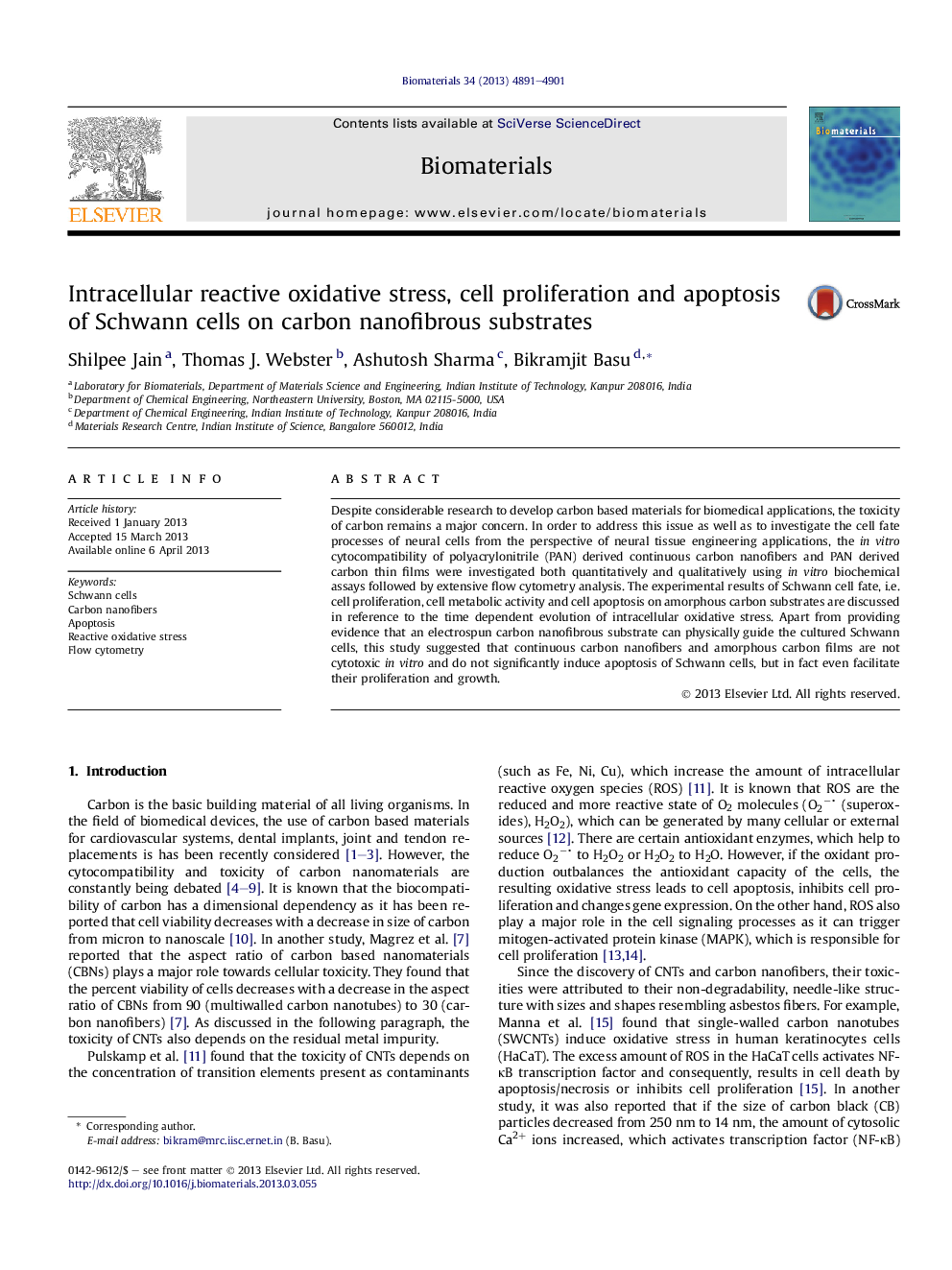| Article ID | Journal | Published Year | Pages | File Type |
|---|---|---|---|---|
| 10228960 | Biomaterials | 2013 | 11 Pages |
Abstract
Despite considerable research to develop carbon based materials for biomedical applications, the toxicity of carbon remains a major concern. In order to address this issue as well as to investigate the cell fate processes of neural cells from the perspective of neural tissue engineering applications, the in vitro cytocompatibility of polyacrylonitrile (PAN) derived continuous carbon nanofibers and PAN derived carbon thin films were investigated both quantitatively and qualitatively using in vitro biochemical assays followed by extensive flow cytometry analysis. The experimental results of Schwann cell fate, i.e. cell proliferation, cell metabolic activity and cell apoptosis on amorphous carbon substrates are discussed in reference to the time dependent evolution of intracellular oxidative stress. Apart from providing evidence that an electrospun carbon nanofibrous substrate can physically guide the cultured Schwann cells, this study suggested that continuous carbon nanofibers and amorphous carbon films are not cytotoxic in vitro and do not significantly induce apoptosis of Schwann cells, but in fact even facilitate their proliferation and growth.
Related Topics
Physical Sciences and Engineering
Chemical Engineering
Bioengineering
Authors
Shilpee Jain, Thomas J. Webster, Ashutosh Sharma, Bikramjit Basu,
